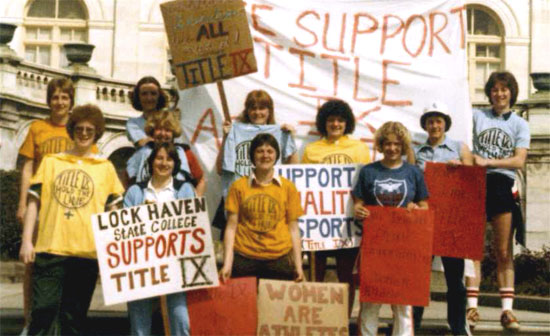
Have you ever had that thought in relation to your school’s sports program? Your high school might schedule the girls’ basketball games on Thursday at 4:00 p.m. while the boys’ games are always on Friday evenings at 8:00 p.m. Or your college may restrict the best facilities for use by the men’s teams. Or the athletic department has been saying for years that there just isn’t enough money for the women’s soccer team to become varsity, even though they keep coming up with the money for other things.
Indeed, there is something wrong here, and it may be against the law. Girls and women in high schools and colleges have the right to equal opportunity in sports because of a federal law, Title IX of the Education Amendments of 1972. States’ equal rights amendments, the Equal Protection clause of the 14th Amendment to the United States Constitution and other laws may also apply.
Yet many girls and women are denied opportunities or treated like second class citizens despite these protections. The more you know about the rights of girls and women in sports, the more you will be able to gain those opportunities.
This guide is aimed at helping athletes, coaches, parents, administrators and others to ensure that girls and women receive equal opportunities in high school and college sports. It concentrates on explaining the Title IX rules and regulations so that you can do an informal analysis of your school’s athletic program. Once you have a better idea of what is and isn’t allowed under Title IX, you will be able to use this knowledge to ask the athletic department, school board or other authority for change. It will also help you to decide if you wish to file a Title IX administrative complaint or a lawsuit.
